外研版(2019)必修第二册Unit 6 Earth first Starting out课件(共32张PPT)
文档属性
| 名称 | 外研版(2019)必修第二册Unit 6 Earth first Starting out课件(共32张PPT) |  | |
| 格式 | zip | ||
| 文件大小 | 33.3MB | ||
| 资源类型 | 教案 | ||
| 版本资源 | 外研版(2019) | ||
| 科目 | 英语 | ||
| 更新时间 | 2022-07-11 16:02:41 | ||
图片预览

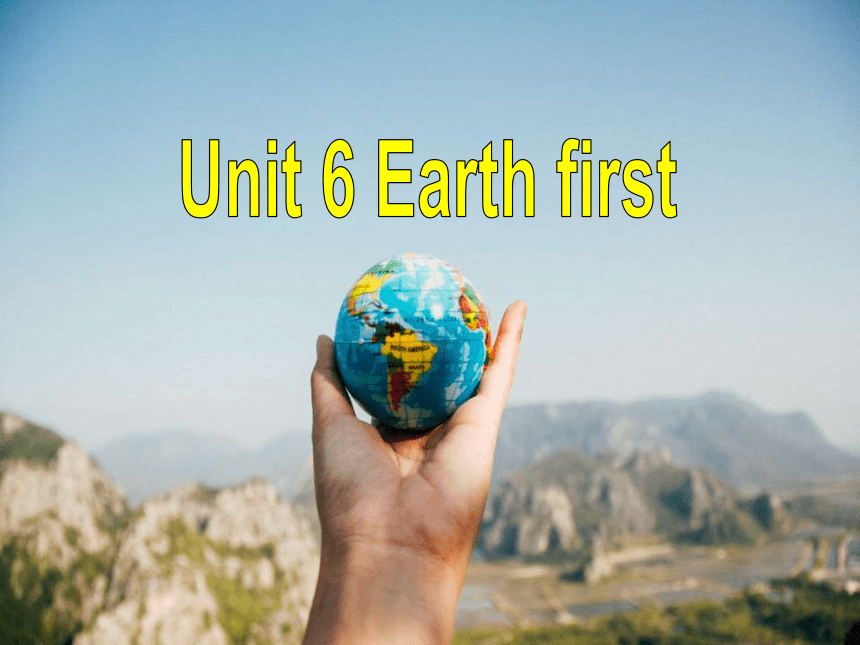
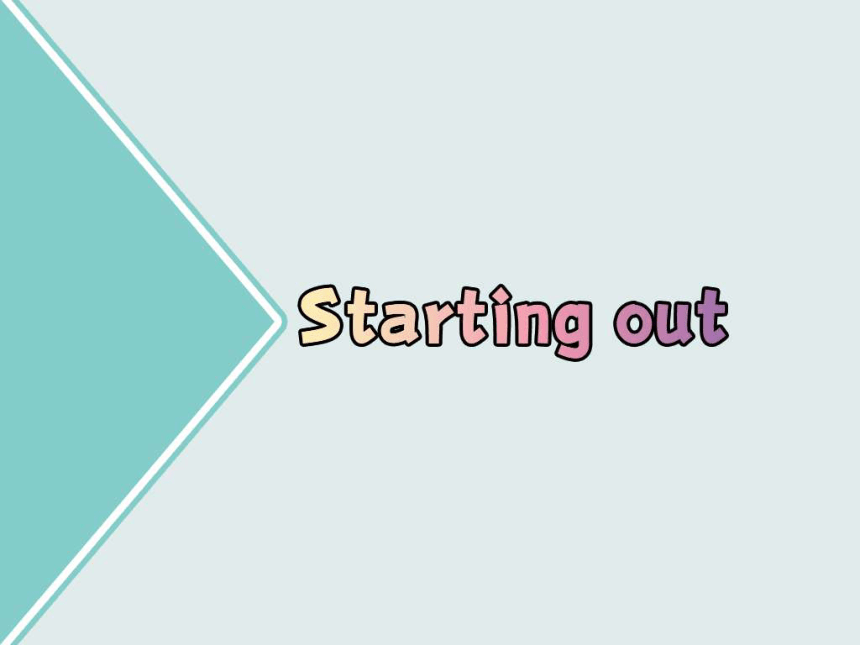
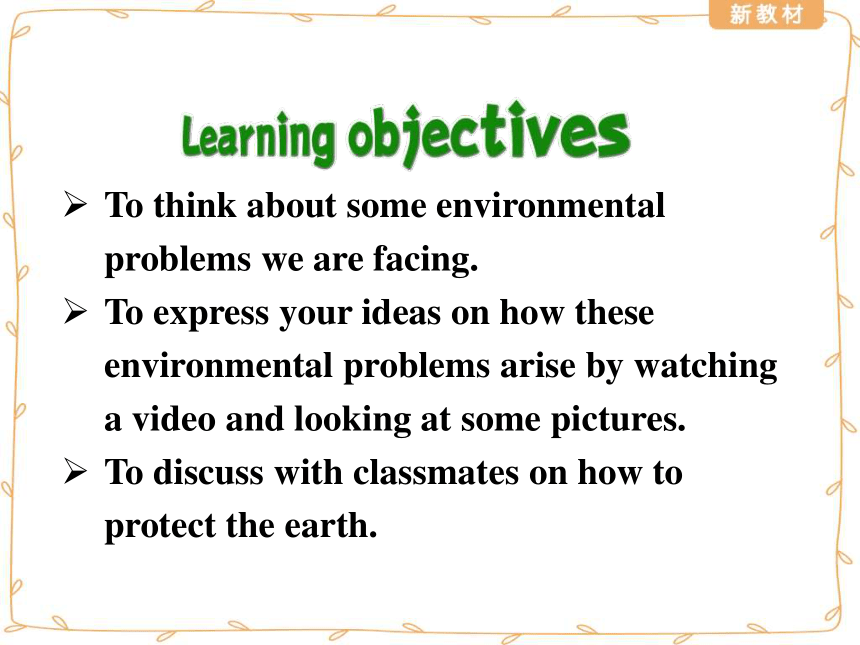
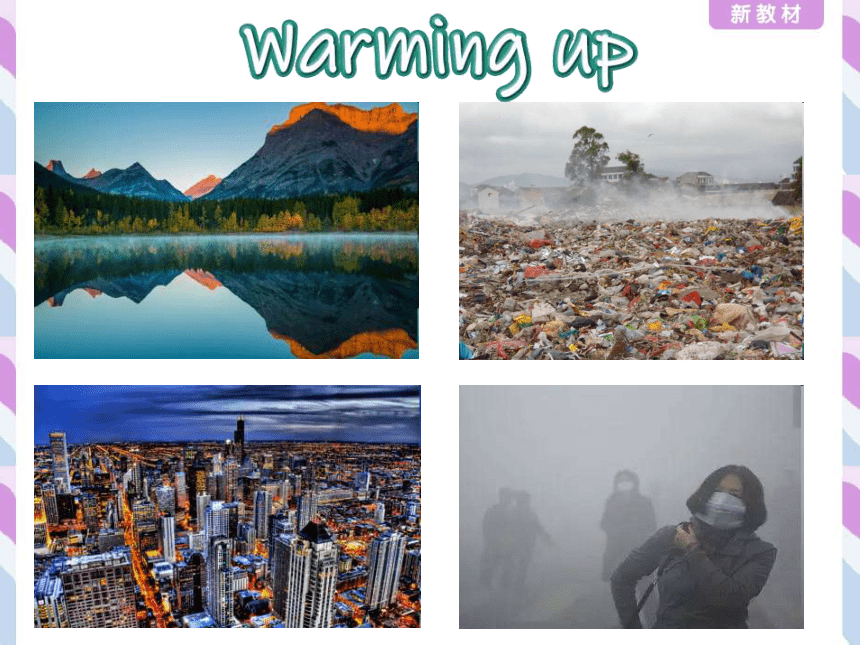
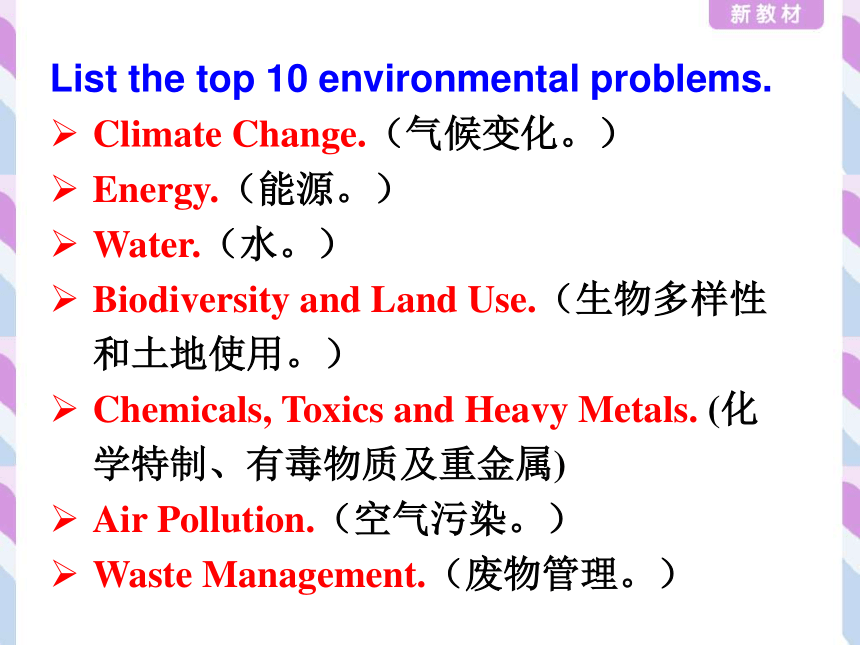
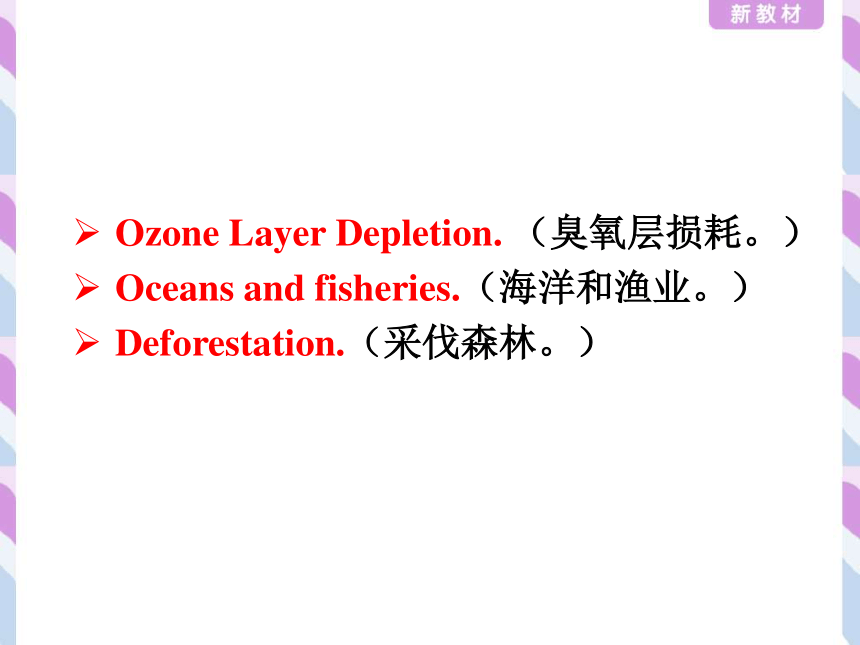
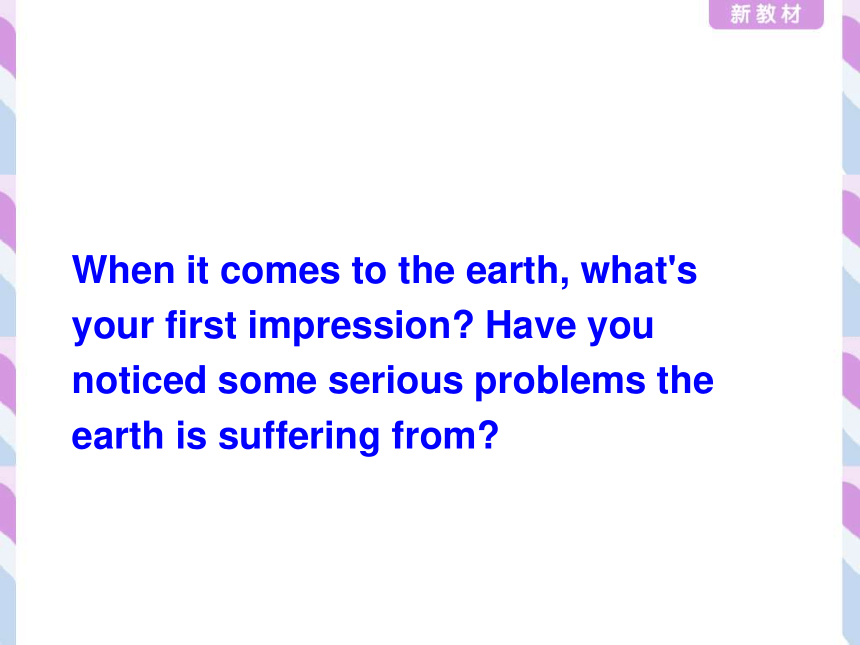
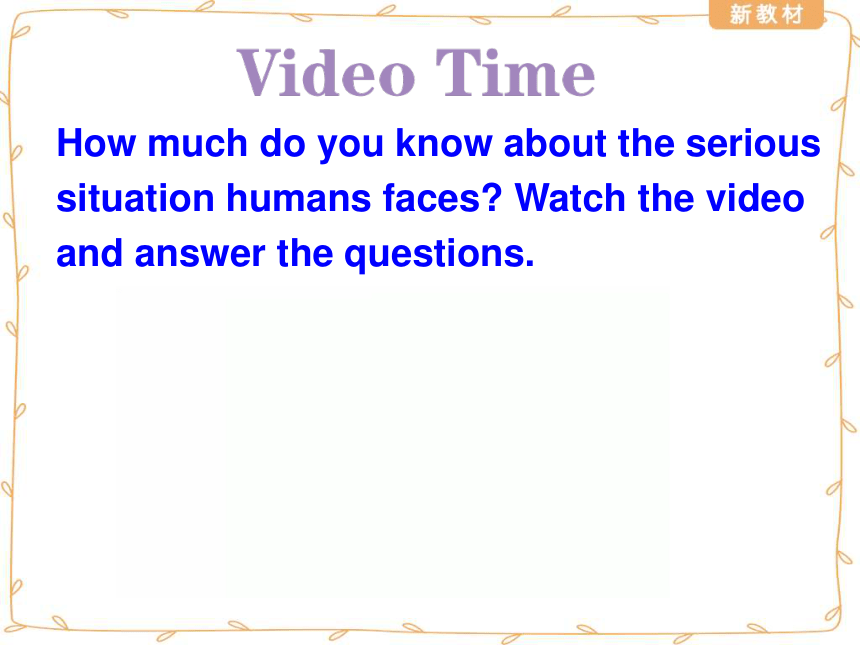
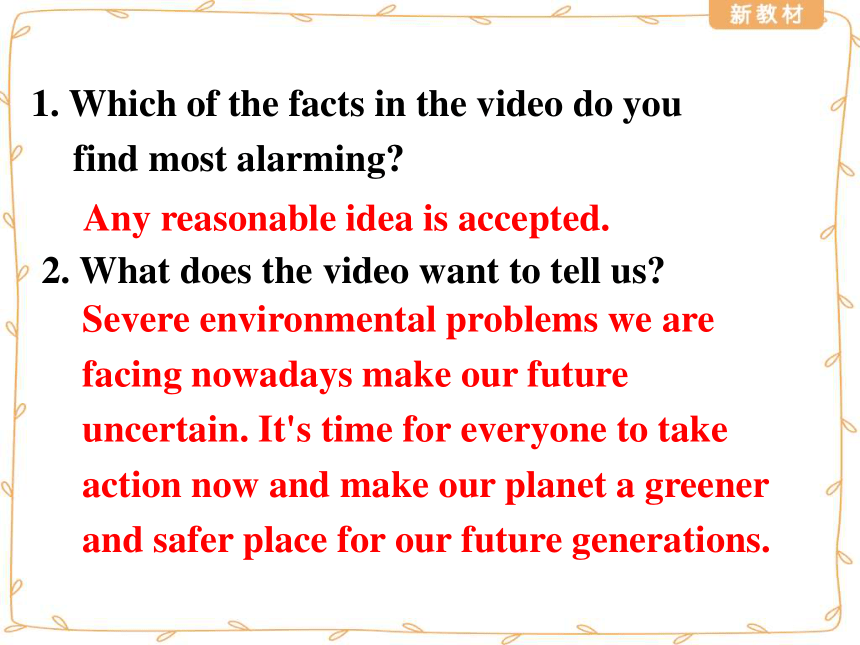
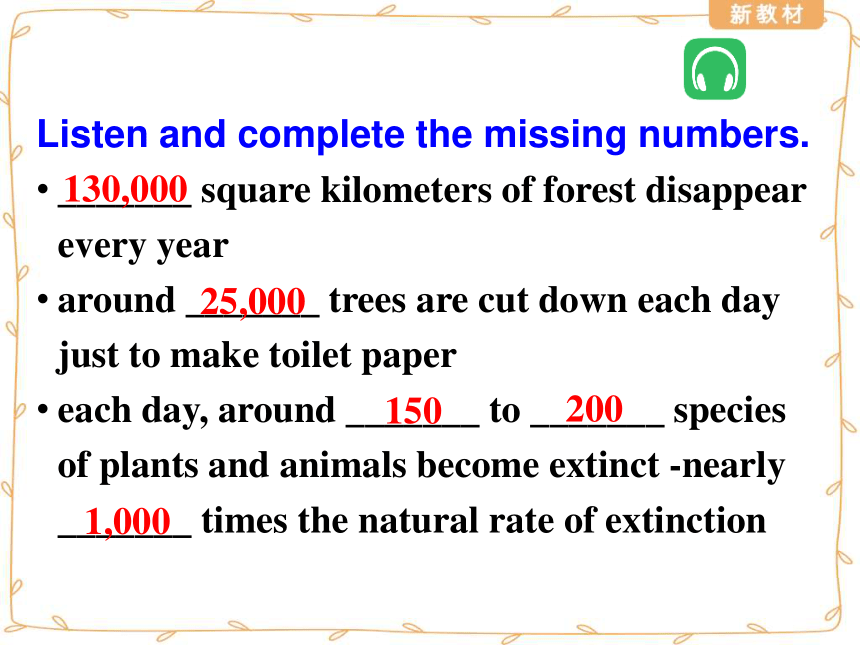
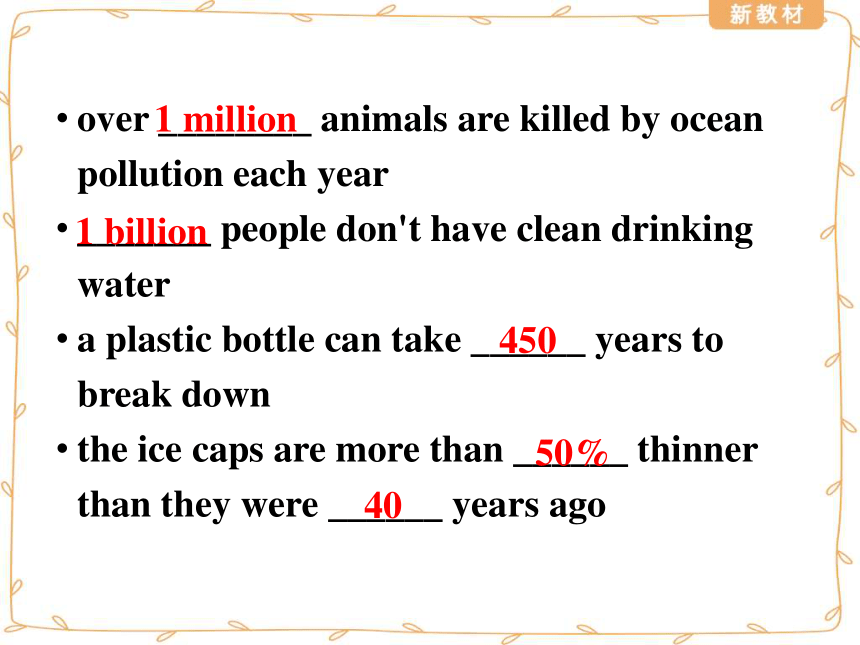
文档简介
(共32张PPT)
Unit 6
Unit 6 Earth first
To think about some environmental problems we are facing.
To express your ideas on how these environmental problems arise by watching a video and looking at some pictures.
To discuss with classmates on how to protect the earth.
List the top 10 environmental problems.
Climate Change.(气候变化。)
Energy.(能源。)
Water.(水。)
Biodiversity and Land Use.(生物多样性和土地使用。)
Chemicals, Toxics and Heavy Metals. (化学特制、有毒物质及重金属)
Air Pollution.(空气污染。)
Waste Management.(废物管理。)
Ozone Layer Depletion. (臭氧层损耗。)
Oceans and fisheries.(海洋和渔业。)
Deforestation.(采伐森林。)
When it comes to the earth, what's your first impression Have you noticed some serious problems the earth is suffering from
How much do you know about the serious situation humans faces Watch the video and answer the questions.
2. What does the video want to tell us
Severe environmental problems we are facing nowadays make our future uncertain. It's time for everyone to take action now and make our planet a greener and safer place for our future generations.
1. Which of the facts in the video do you find most alarming
Any reasonable idea is accepted.
Listen and complete the missing numbers.
_______ square kilometers of forest disappear every year
around _______ trees are cut down each day just to make toilet paper
each day, around _______ to _______ species of plants and animals become extinct -nearly _______ times the natural rate of extinction
130,000
25,000
150
200
1,000
over ________ animals are killed by ocean pollution each year
_______ people don't have clean drinking water
a plastic bottle can take ______ years to break down
the ice caps are more than ______ thinner than they were ______ years ago
1 million
1 billion
450
50%
40
Discuss what major environmental problems we are facing currently.
1. Pollution: water pollution, air pollution, soil pollution, etc.
2. Global warming. 3. Climate change.
4. Overpopulation. 5. Waste disposal.
6. Loss of biodiversity. 7. Deforestation.
water pollution
air pollution
plastic pollution
global warming
waste disposal
soil pollution
overpopulation
deforestation
Look at the cartoons on page 61 and answer the questions.
1. What environmental problem does each cartoon refer to
Water pollution; deforestation; air pollution; global warming
2. What are the causes of these problems
Use following expressions to help you:
ignore, cause/lead to/result in, people's awareness of environmental protection, fossil fuel burning...
3. What do you think is the most serious environmental problem we face today What should be done to help solve it
Use following expressions to help you:
invest, recycle, carpooling, classification of waste, green/clean energy...
Choose one of the most serious environmental problems and discuss in groups to analyze the causes and think about possible solutions.
air pollution
Cause:
the burning of fossil fuels, agricultural activities, exhaust from factories and industries, mining operations, indoor air pollution
Possible solutions:
taking public transportation;
conserving energy;
understanding the concept of Reduce, Reuse and Recycle;
emphasis on clean energy resources;
using energy efficient devices;
...
How about plastic pollution
Packaging waste
Plastic has revolutionized the way we package goods and safely consume food. But packaging accounts for more than 35% of plastic worldwide.
Southeast Asia has seen an explosion of plastic packaging waste, which increasing the risk of polluting rivers and seas.
Most plastic packaging is single use. Recycling rates are extremely low - less than 9% globally. If nothing changes, 26 billion tones of plastics will be produced over the next 30 years.
Solutions:
Controls on industry for
plastic packaging production.
Inventions and investment in biodegradable (生物可降解的)
or reusable packaging.
Government targets to restrict plastic packaging and promote recycling.
What’s your solution
If we do not change our ways, we are at risk of ruining our planet and destroying many more plants and animals. All of these things will be gone. And we will be gone, too.
Time is running out. Our planet needs our help.
It's up to us to decide together what happens next.
Make a survey about water pollution around you, then write a short report in 70 words, including existing problems, causes, damage, possible solutions.
Unit 6
Unit 6 Earth first
To think about some environmental problems we are facing.
To express your ideas on how these environmental problems arise by watching a video and looking at some pictures.
To discuss with classmates on how to protect the earth.
List the top 10 environmental problems.
Climate Change.(气候变化。)
Energy.(能源。)
Water.(水。)
Biodiversity and Land Use.(生物多样性和土地使用。)
Chemicals, Toxics and Heavy Metals. (化学特制、有毒物质及重金属)
Air Pollution.(空气污染。)
Waste Management.(废物管理。)
Ozone Layer Depletion. (臭氧层损耗。)
Oceans and fisheries.(海洋和渔业。)
Deforestation.(采伐森林。)
When it comes to the earth, what's your first impression Have you noticed some serious problems the earth is suffering from
How much do you know about the serious situation humans faces Watch the video and answer the questions.
2. What does the video want to tell us
Severe environmental problems we are facing nowadays make our future uncertain. It's time for everyone to take action now and make our planet a greener and safer place for our future generations.
1. Which of the facts in the video do you find most alarming
Any reasonable idea is accepted.
Listen and complete the missing numbers.
_______ square kilometers of forest disappear every year
around _______ trees are cut down each day just to make toilet paper
each day, around _______ to _______ species of plants and animals become extinct -nearly _______ times the natural rate of extinction
130,000
25,000
150
200
1,000
over ________ animals are killed by ocean pollution each year
_______ people don't have clean drinking water
a plastic bottle can take ______ years to break down
the ice caps are more than ______ thinner than they were ______ years ago
1 million
1 billion
450
50%
40
Discuss what major environmental problems we are facing currently.
1. Pollution: water pollution, air pollution, soil pollution, etc.
2. Global warming. 3. Climate change.
4. Overpopulation. 5. Waste disposal.
6. Loss of biodiversity. 7. Deforestation.
water pollution
air pollution
plastic pollution
global warming
waste disposal
soil pollution
overpopulation
deforestation
Look at the cartoons on page 61 and answer the questions.
1. What environmental problem does each cartoon refer to
Water pollution; deforestation; air pollution; global warming
2. What are the causes of these problems
Use following expressions to help you:
ignore, cause/lead to/result in, people's awareness of environmental protection, fossil fuel burning...
3. What do you think is the most serious environmental problem we face today What should be done to help solve it
Use following expressions to help you:
invest, recycle, carpooling, classification of waste, green/clean energy...
Choose one of the most serious environmental problems and discuss in groups to analyze the causes and think about possible solutions.
air pollution
Cause:
the burning of fossil fuels, agricultural activities, exhaust from factories and industries, mining operations, indoor air pollution
Possible solutions:
taking public transportation;
conserving energy;
understanding the concept of Reduce, Reuse and Recycle;
emphasis on clean energy resources;
using energy efficient devices;
...
How about plastic pollution
Packaging waste
Plastic has revolutionized the way we package goods and safely consume food. But packaging accounts for more than 35% of plastic worldwide.
Southeast Asia has seen an explosion of plastic packaging waste, which increasing the risk of polluting rivers and seas.
Most plastic packaging is single use. Recycling rates are extremely low - less than 9% globally. If nothing changes, 26 billion tones of plastics will be produced over the next 30 years.
Solutions:
Controls on industry for
plastic packaging production.
Inventions and investment in biodegradable (生物可降解的)
or reusable packaging.
Government targets to restrict plastic packaging and promote recycling.
What’s your solution
If we do not change our ways, we are at risk of ruining our planet and destroying many more plants and animals. All of these things will be gone. And we will be gone, too.
Time is running out. Our planet needs our help.
It's up to us to decide together what happens next.
Make a survey about water pollution around you, then write a short report in 70 words, including existing problems, causes, damage, possible solutions.
